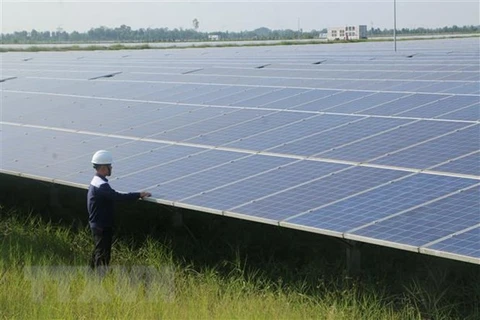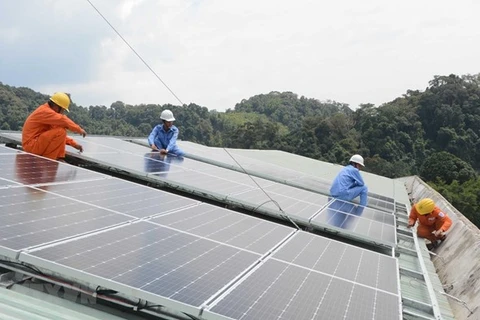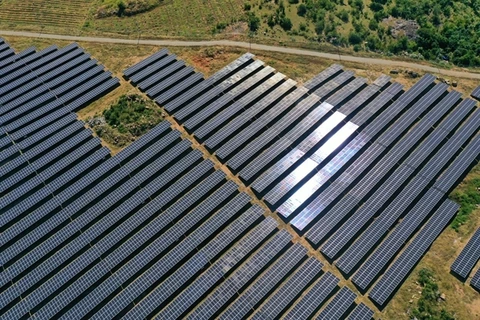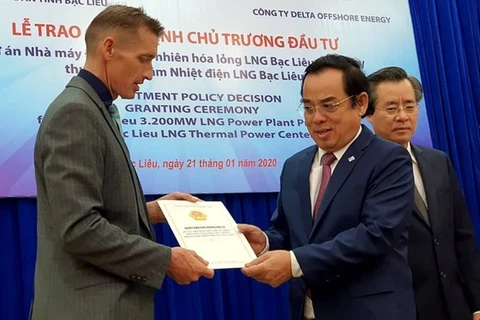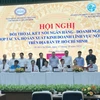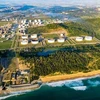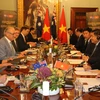Hanoi (VNA) – The Made in Vietnam Energy Plan 2.0 (MVEP 2.0), a business case for the primary use of Vietnam’s domestic resources to stimulate investment in clean, secure and affordable energy generation, was officially launched by the Vietnam Business Forum (VBF) on February 27.
At the launching ceremony, VBF Co-Chairwoman Virginia Foote said the plan was rolled out in the context that development of renewable, clean and safe energy is an urgent issue as the country is suffering sheer exhaustion of fossil fuel resources.
The MVEP 2.0, based on the groundbreaking 2016 edition – MVEP 1.0, was developed during a time of the fast transition towards renewable energy and increasing use of natural gas in electricity production in Vietnam.
The report recommends Vietnam to prioritise renewable energy in national power planning; increase use of natural gas as the current best-fit baseload for renewable energy; construct a regulatory and permitting environment that attracts private sector and smaller scale off-grid investment in clean energy generation and energy efficiency; invest in grid infrastructure to improve stability and capacity; and halt any new approvals for coal.
It also suggests the implementation of regulatory frameworks and incentives that encourage investment in renewable energies, such as rooftop solar, battery storage, floating solar, and offshore wind projects, with simplified approval processes, while still maintaining safe power systems.
According to John Rockhold, head of VBF Power and Energy Working Group, Vietnam holds huge potential for the development of clean power, such as solar power, win power and hydropower.
The country’s demand for power is increasing, and the system of transmission lines should be completed as soon as possible, he said, adding as the state’s resources are limited, it is necessary to promote the private-public partnership model and engage the participation of the private sector in power management, distribution and retail prices./.
VNA

